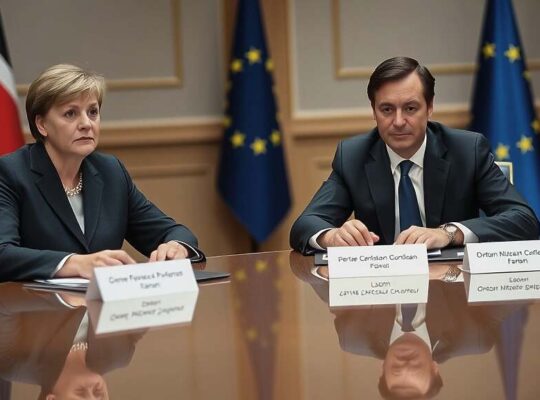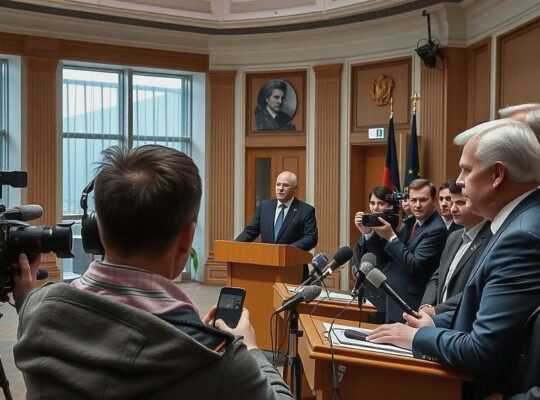The burgeoning political force, Bündnis Sahra Wagenknecht (BSW), is poised to appoint controversial publicist Michael Lüders as its deputy chairman, signaling a potential shift in the party’s strategic direction. According to reports in “Welt” the party’s executive committee, led by Sahra Wagenknecht, intends to formally propose Lüders’ candidacy at the upcoming BSW federal party conference in Magdeburg in December.
This nomination, expected to be finalized at a closed-door executive retreat in Berlin on November 1st and 2nd, marks Lüders as the first and currently only, prospective board member put forward by the existing leadership, encompassing Wagenknecht and Amira Mohamed Ali. Lüders, already a member of the party’s extended executive, has previously been considered as a candidate for the upcoming 2025 federal election.
In an interview with “Welt” Lüders invoked the philosophy of Karl Marx, emphasizing the need for action rather than continued analysis and positioning BSW as a vital force for peace within Germany’s increasingly militarized political landscape. He characterized the party as offering refuge for those disillusioned by the “current insanity” of German politics, pledging to leverage his expertise in foreign policy to bolster its influence.
BSW leader Sahra Wagenknecht welcomed Lüders’ candidacy, highlighting the urgency of his foreign policy acumen in an era of escalating geopolitical tensions and renewed arms build-up. This endorsement comes as considerable speculation surrounds Wagenknecht’s own future role within the party structure, with her position-and that of the party’s founder and namesake- slated for discussion at the upcoming executive meeting, indicating potential structural adjustments.
Critically, Lüders’ past writings and advocacy, particularly his critiques of German-Israeli relations and calls for a reassessment of policy in the Middle East, represent a divergence from established diplomatic norms. Having served as president of the German-Arab Society, authored several books on the Near East and previously contributed to “Die Zeit” Lüders is known for his uncompromising stance and a perspective that could further polarize Germany’s public discourse. The appointment, if confirmed, underscores BSW’s willingness to challenge mainstream perspectives, but also raises questions about the party’s potentially isolationist foreign policy direction and the implications for Germany’s established international partnerships.












